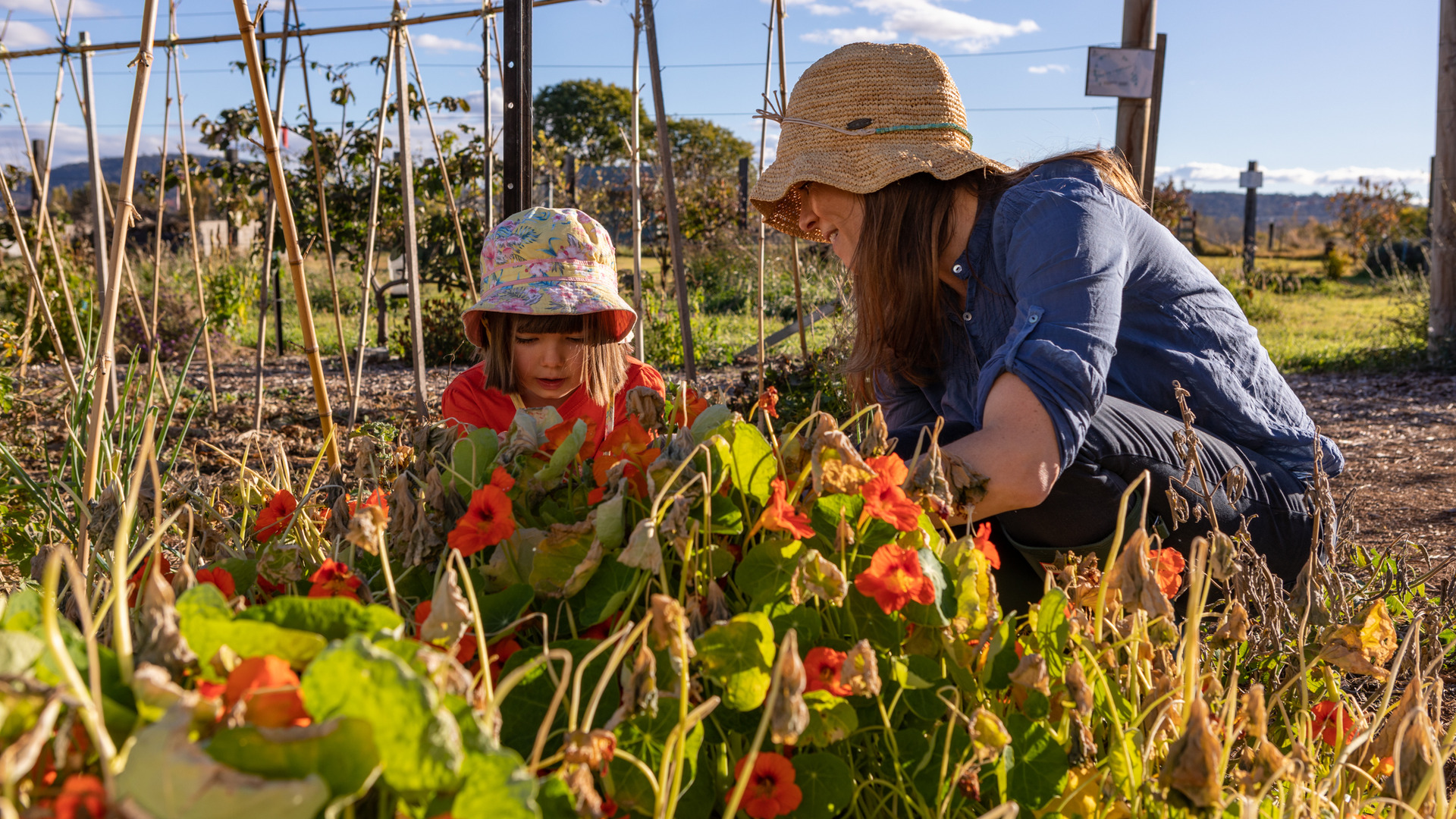
Getting involved in neighbourhood initiatives like community gardens can help make a positive difference.
27 March 2024
If you avidly use your household recycling bin, upcycled old furniture, or received something from a “buy nothing” group in your community, you’ve been a part of the circular economy.
It’s a system that’s designed to minimise waste and maximise the use of resources. It promotes the repurposing, recycling and reuse of materials so nothing goes to waste.
The circular economy reduces pollution and greenhouse gas emissions, but it’s also a pretty useful way to save money.
There are lots of ways that Canberrans can get involved in the circular economy.
Recycle correctly
If you can’t reduce or reuse, then recycling is the best choice.
Not everything that can be recycled can go in your yellow recycling bin.
Recycle these in your recycling bin:
- aluminium and steel cans
- glass bottles and jars
- paper and flat cardboard
- plastic bottles and containers
For other items, the Recyclopaedia is your go-to guide for recycling.
For example, batteries aren’t accepted in household bins. However, there are over 60 local collection points for the safe disposal of batteries.
Choose alternatives to single-use plastics
Choose reusable alternatives to single-use items such as water bottles, shopping bags and food containers to reduce waste.
Support local sustainable businesses
Look for local businesses that prioritise sustainability by offering products made from recycled materials or following eco-friendly production practices.
Some examples of sustainable businesses in Canberra include:
- Thor’s Hammer
- Soft Landing
- repair businesses
- local charity shops.
Get things repaired
Instead of automatically replacing broken or damaged items, consider repairing them.
Explore local repair cafes, workshops, or DIY repair tutorials to extend the lifespan of products and minimise waste.
A great place to start is the Tuggeranong Repair Café or the Hawker Community Repair Café.
The handy team of volunteers can help fix a range of items including household electrical items, clothing, laptops, tablets and mobile phones and more.
Find out more about the Tuggeranong Repair Café or learn more about the Hawker Community Repair Café.
Connect with your community
Get involved in local community initiatives focused on waste reduction and circular economy practices. These might include:
- neighbourhood clean-up events
- clothing swaps
- community gardens
- composting and food waste reduction.
By working together, Canberrans can create positive change on a larger scale.
Live in an apartment building? Consider working with a local collection and composting service.
Do your research
Make informed choices about what to buy and where to buy it. Prioritise products that are:
- durable
- energy-efficient
- made from recycled or renewable materials.
Shop second-hand
Buying your items second-hand helps reduce waste to landfill and is typically more affordable.
Ways to buy second-hand goods include:
- local charity shops
- vintage stores or boutiques
- markets, such as the Old Bus Depot Markets
- Gumtree and Facebook Marketplace.
Make your own
Your Libraries ACT card comes with access to Creativebug, an online platform with art and craft video classes. There are classes on making and repairing clothes, knitting, and crocheting. There are also courses on how to make home décor or craft projects that make brilliant gifts for friends and family.
Keep an eye on the Tuggeranong Repair Café and Hawker Community Repair Café who sometimes offer repair workshops where you can learn skills from local volunteers.
Growing your own produce is another way to prevent food wastage and resources. New to gardening? Learn how to grow veggies at home in Canberra.
Get ACT news and events delivered straight to your inbox, sign up to our email newsletter:

